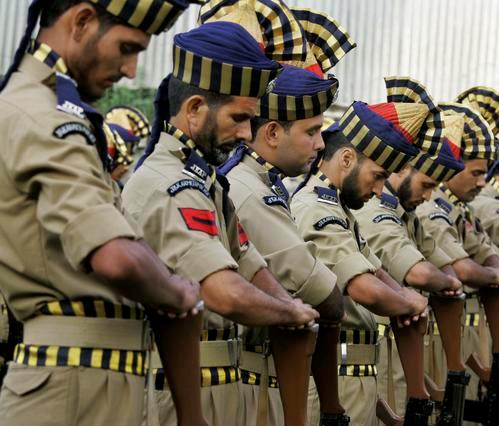David L. Chaplin II
Impunity Watch Reporter, Asia
DHAKA, Bangladesh – Police in Bangladesh have charged 824 people for the massacre of 74 senior military officers during a mutiny by border guards in February last year. All suspects could face the death penalty if found guilty.

Seventy-four people, including 57 senior army officers, were killed during the siege of a military base in Dhaka, the capital, in an uprising that briefly threatened the government of Sheikh Hasina, the prime minister.
Prosecutors announced the charges on Monday and the trials against the mutiny’s ringleaders and participants are expected to take at least one year to complete in Bangladesh’s civil courts.
“We have charged 824 people with murder, conspiracy, aiding and abetting murder, looting military weapons and arson,” Mosharraf Hossain Kazal, the state prosecutor, said.
Rebelling soldiers were allegedly angry about their superiors’ refusal to increase their pay and improve working conditions.
“They mowed their officers down in cold blood, using semi-automatic weapons and rifles they’d looted from the barracks,” Akhand, the police investigator, said of mutineers who took control of BDR headquarters on February 25, 2009.
The violence has spread nationwide and Bangladesh appeared to be on the brink of civil war.
The case will be handled by Bangladesh’s civil courts in what will be the largest trial in the country’s history.
In parallel prosecutions, some 3,500 soldiers who had joined the rebellion are being tried in military courts on lesser charges.
At least 200 guards have already been convicted by the tribunals with jail sentences ranging from four months to seven years.
The mutiny erupted at the BDR headquarters in Dhaka and lasted 33 hours, during which officers were killed and their bodies dumped in sewers and shallow graves.
“A senior officer was taken to the roof of a four-storey building and thrown to the ground. The dead bodies of a few officers were set on fire.”
The mutiny took place just two months after the country returned to civilian rule under Prime Minister Sheikh Hasina.
She had originally offered an amnesty to some mutineers but this was rescinded when the extent and nature of the bloodshed became clear.
For more information, please see:
BBC – Bangladesh charges 824 people over deadly mutiny – 12 July 2010
Al Jazeera English – More charged over Bangladesh mutiny – 12 July 2010
Radio Netherlands Worldwide – Bangladesh charges 824 for deadly munity murders – 12 July 2010



